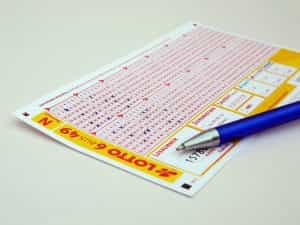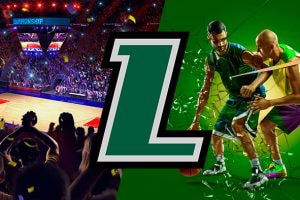CVC to Rival Camelot for National Lottery Franchise
CVC Capital Partners are ready to challenge Camelot for the UK’s National Lottery franchise. The Investment giant faces competition from Czech lottery operator Sazka.

CVC Launches Surprise National Lottery Bid ©Pixabay.
Private equity and investment advisory company CVC Capital Partners have joined the race to run the UK’s National Lottery. The company is one of the most prolific investors globally, with an estimated investment portfolio of £152bn. They are teaming up with Sisal, who runs Italy’s most popular lottery, to challenge Camelot and other interested parties for the franchise, which the Gambling Commission has invited tenders for.
The Sunday Times claims CVC and Sisal will team up with children’s charity Barnardo’s, who will provide the consortium with advice on distributing funds for good causes in the UK. Since the lottery first began in 1994, it has raised over £42bn, and the group feel the charity’s experience and being a trusted brand will help their bid.
CVC has recently expanded its presence within the sports industry and has invested in the Six Nations and the Gallagher Premiership in rugby. The firm also previously had interests in Formula One. Experience in sports is likely to be beneficial to CVC’s bid as grassroots sports are among the biggest beneficiaries of funds distributed from lottery revenues.
This week, CVC also made headlines in the technology sector after lodging a $20bn buyout bid to take over Japan’s Toshiba, a household name in the UK. If they are successful in their bid, it would be CVC’s biggest ever deal and become the largest leveraged buyout in Japan’s history. When news broke of the proposed deal, shares in Toshiba jumped eleven per cent, meaning foreign investors who invested in 2018 when the share price was ¥2,600 ($23) could see a return of over one hundred per cent.
The CVC consortium is vying to replace the current operator Camelot, the sole franchise operator since the lottery started in 1994. Camelot has expanded the range of products. Along with the main National Lottery draw (Lotto), the company also runs EuroMillions, Thunderball, LottoHotPicks, EuromillionsHotPicks, Set For Life, Scratchcards and Interactive Instant Win Games. Each game is licenced and regulated by the Gambling Commission who additionally monitor online lottery betting in all its forms.
Camelot’s running of the National Lottery has not been universally acclaimed, with opponents of the current model questioning why the lottery franchise is operated by a company that profits from its running. Many feel a not-for-profit would be a better solution, especially after the National Lottery brand is synonymous with supporting good causes.
Camelot has received criticism in recent years when a National Audit Office report showed that its profits had risen sharply by a hundred and twenty-two per cent in seven years, but the money distributed to good causes only rose by two per cent. Shareholders over that period received £71m.
Camelot responded to the criticism, saying: “We continue to return about 95 per cent of all lottery revenue back to winners and society, one of the highest percentages in the world. In contrast, our profit after tax is about 1 per cent of total revenue.”
Jay Kennedy, director of policy and research at the Directory of Social Change, said of the National Audit Office report: “What does the government expect? When you outsource a public service to a private sector company, it’s no surprise that it will do what it can to maximise shareholder profits. You can’t blame Camelot for that.”
Camelot’s licence to run the National Lottery ends in 2023, although the company has already stated they will be applying to continue their tenure. The new licence will be for a fixed 10-year period which the Gambling Commission hope will allow the owner of the licence a clear period for investment planning.



